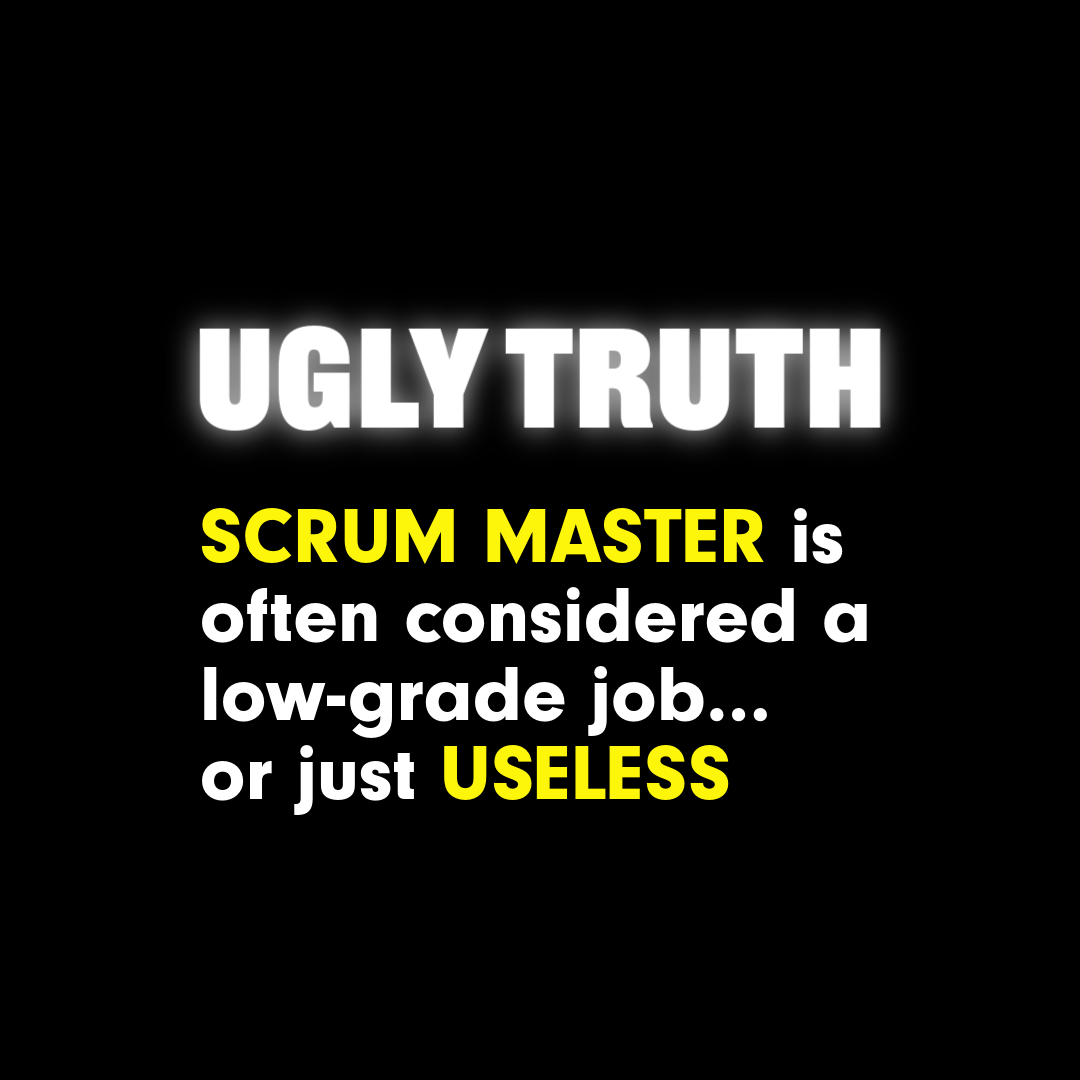Scrum Master is considered a low-grade job or even completely useless - here is WHY.
Let’s speak the truth about what we see in most companies. If your experience is different, I’m genuinely happy for you. But I’m speaking from what I’ve learned through years spent in companies of various sizes, industries, and locations:
a Scrum Master is considered a low-grade job… or even completely useless.
WHY???
1. LOW-VALUE EXPERTISE.
Most Scrum Masters do not possess any truly valuable expertise beyond a basic understanding of key Scrum elements—something easily acquired through numerous courses or public resources.
Some know various coaching and facilitation techniques, proficient in practices and tools… However, are those skills even comparable to, say, multiple years of experience as a software developer? Then why should a company pay a Scrum Master the same, or even more, than a developer?
Some Scrum Masters do have skills in building real teams… Yet that’s a general leadership skill that many roles, especially managers, should possess, shouldn’t they?
2. LOW-VALUE OUTCOMES.
Most Scrum Masters don’t actually contribute to business value anyhow significantly (unless they combine the role with others).
Just imagine losing all Scrum Masters at once. Managers could easily redistribute the typical Scrum Master activities, including meetings facilitation, work coordination, metrics collection,and tool management, among team members and that will not overburden them at all. Moreover, should they abandon some of those activities, it might even save time.
On the other hand, suddenly losing just 10% of developers (assuming the organizational design stays unchanged) can immediately give most CEOs a headache.
WHAT'S MISSING?
Must-dos of Valuable Scrum Masters:
✅ Must not get obsessed with blindly coaching everyone around them, regardless of whether that coaching is needed. Coaching should be just one of the means to drive change toward unlocking the organization’s full potential to maximize value.
✅ Must recognize when people are uninterested in learning or continue to behave dysfunctionally despite knowing better.
✅ Must identify (in collaboration with others) the deeply rooted causes behind such behavior—and address those drivers.
✅ Must skillfully collaborate with senior management when organizational changes are needed.
✅ Must strive for systemic organizational change, tailored to context beyond frameworks, including management and HR practices, structures, roles, and processes within and beyond their products.
This type of Scrum Master is… actually the genuine Scrum Master - one who remembers that being a Change Agent is part of the role and doesn’t limit that to frameworks alone.
They are extremely hard to find and deserve both a position and a pay grade at the management level!

